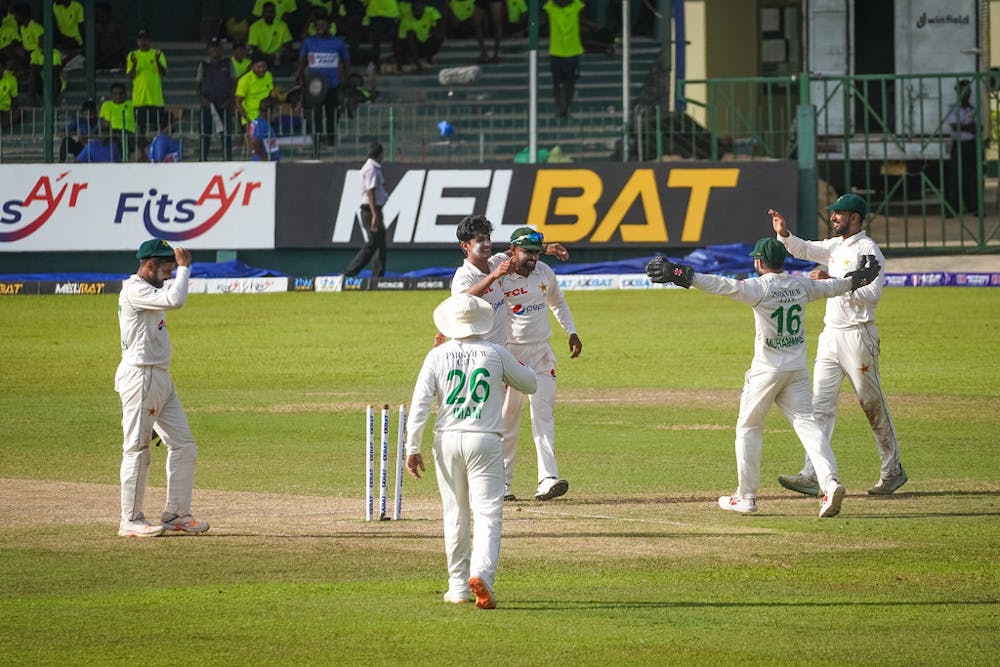Cricket runs deep in Pakistan’s national identity, predating the nation itself. After all, cricket in the Indian subcontinent emerged in the colonial era, eventually serving as a vessel of nationalistic pride against the British. Following independence, the Pakistani National Cricket Team burst onto the international stage, first as they were granted Test status by the ICC in 1952, before developing into a powerhouse in the 1980s.
The golden era of Pakistan cricket will be remembered by a number of monumental victories on the world stage: the 1992 ICC World Cup, 2000 Asia Cup, 2009 T20 World Cup, 2012 Asia Cup and 2017 ICC Champions Trophy. Each title brought a new wave of inspiration to millions of Pakistanis worldwide. In particular, the ‘92 ICC World Cup run started poorly for the team as they won only two of their first five matches. However, under the leadership of captain Imran Khan, the Pakistani team played like “cornered tigers” (a phrase coined by Khan) to win every match, all the way to the final against England. The team came to symbolize Pakistani resilience as the underdog. Throughout this time, cricket superstars — Imran Khan, Wasim Akram, Shoaib Akhtar and Shahid Afridi — inspired pride at home and fear abroad.
However, in recent years, the team’s victories have started to feel like distant memories. Pakistan has repeatedly faltered in crucial games, losing by outrageous scores to rivals or losing entirely against lower-ranked teams. For example, Pakistan failed to progress beyond the first round at the 2024 T20 World Cup, losing to the United States (a team consisting of part-time players). Pakistan also exited the group stage of the ICC Champions Trophy 2025 without any win, facing defeats to New Zealand, India and Bangladesh. Broadly speaking, the team’s ranks have fallen to 7th in Tests, 5th in ODIs and 7th in T20Is.
Certainly, Pakistan’s cricket team does not lack quality; their players have put on some incredible performances throughout the years. Babar Azam, one of the world’s elite batters, has a high batting average across all forms of the game, and Shaheen Shah Afridi, fast-bowler known for his ferocity, has ODI/T20 bowling averages around 27.
Therefore, how can we look for the issue anywhere other than the structural stability at the top? The Pakistan Cricket Board (PCB) governs the national team, and since late 2022, they have faced consistent leadership turnover and political interference, resulting in the changing of coaches and captains. Since this time, when the federal government removed then PCB Chairman Ramiz Raja, three different chairmen have overseen the PCB. Moreover, the PCB has also split the captain’s role among formats: Shan Masood as the captain of the Test team, Mohammad Rizwan as the captain of the ODI team and Salman Ali Agha as the captain of the T20 team (a position replaced 3 times in the past 5 years). As of 2025, seven different people have coached the Pakistani team within the last four years, each bringing their own ideas, approach and philosophy.
A successful cricket team relies on its leadership to hone strategies and understand an overarching purpose. When teams oscillate between leaders, the players are bound to lose trust and cohesion, competing for personal performance rather than collective success.
To put it simply: variation in leadership breeds mediocrity.
Another issue lies in the country’s politics as a whole. Sports in Pakistan are, problematically, joined at the hip with politics. The current chairman of the PCB, Mohsin Naqvi, is a businessman-turned-politician, who also serves as the Interior Minister of Pakistan. Traditionally, a chairman is responsible for regulating and managing cricket in the entire nation, while an interior minister focuses on immigration, policing and other measures related to national security. Both responsibilities require focus and dedication in their own fields; it’s difficult to believe that one man can manage both without politics flowing into the game, and vice versa.
In the face of further disappointing results, the team’s coach, Gary Kirsten, a former South African cricketer who famously coached India during the team’s 2011 ODI World Cup win, resigned as Pakistan’s white-ball coach barely six months into the job. He cited issues such as experiencing a “power-struggle with the PCB” and being stripped of selection powers. These administrative faults significantly impact team morale and preparation.
Notably, Pakistan’s political landscape has been significantly affected by corruption, turmoil and terrorism. This not only disrupts cricket leadership but also diminishes player morale in the country. If the country’s hope grows slim, how can players take pride in their craft and representation?
In today’s era, Pakistan lost to India in the 2025 Asia Cup Finals, and the team’s inconsistency remains under the spotlight again. While their campaign began with a 93-run win over Oman, they first lost by a seven-wicket margin to India (with a 6/2 score in the starting minutes of the match). While they sealed their place in the Super Four with a 41-run win against the United Arab Emirates, the Pakistani team’s second match with India on Sunday arguably still dispelled doubts over their abilities (as they were projected to score in the range of 180 runs, but ended up falling short with 171, ultimately resulting in their loss to the Indian team). In the finals, the Pakistan team, projected to score in the 180 run range, ultimately scored 146 runs in 19.1 overs, while India won the match with a score of 150/5 with 2 balls left.
As their history shows, Pakistan is capable of brilliant cricket. But it remains to be seen how the weight of the regime has an effect on performance, and how the constant political interference fares on the team’s future…





